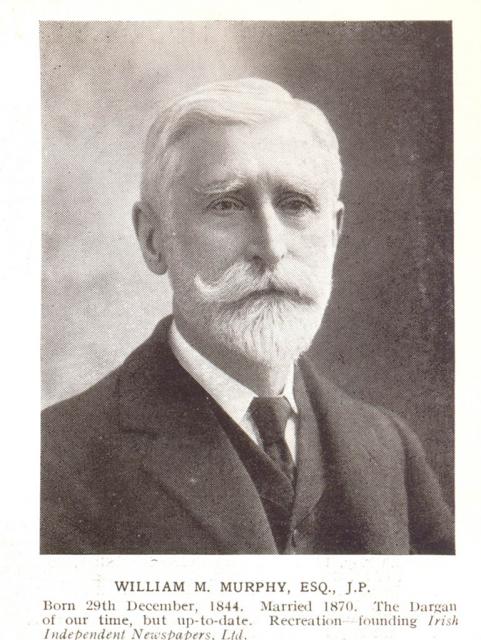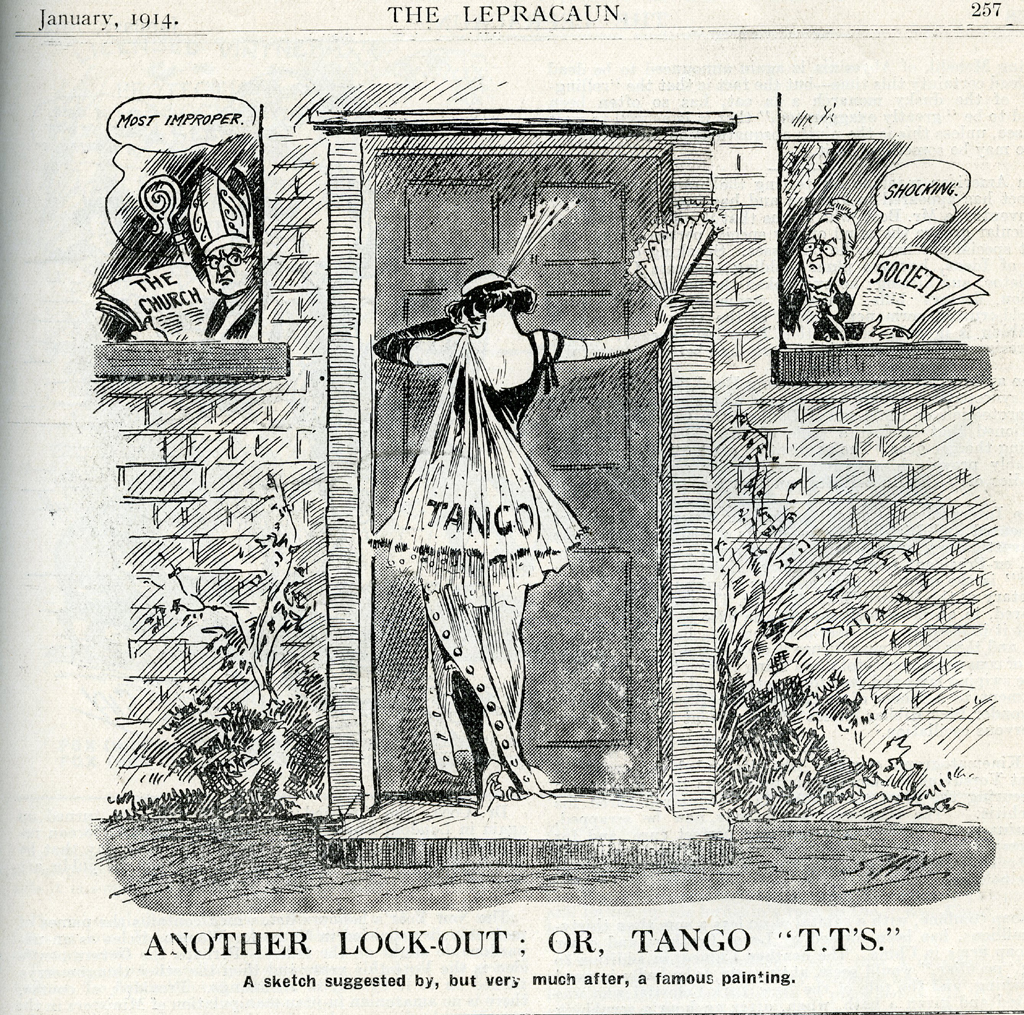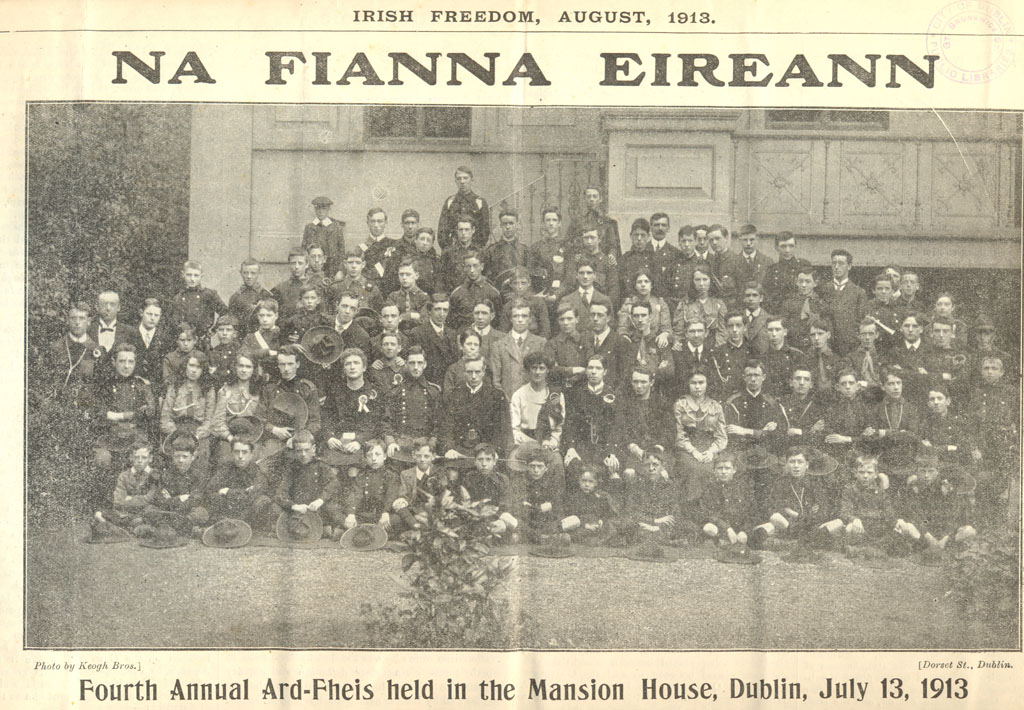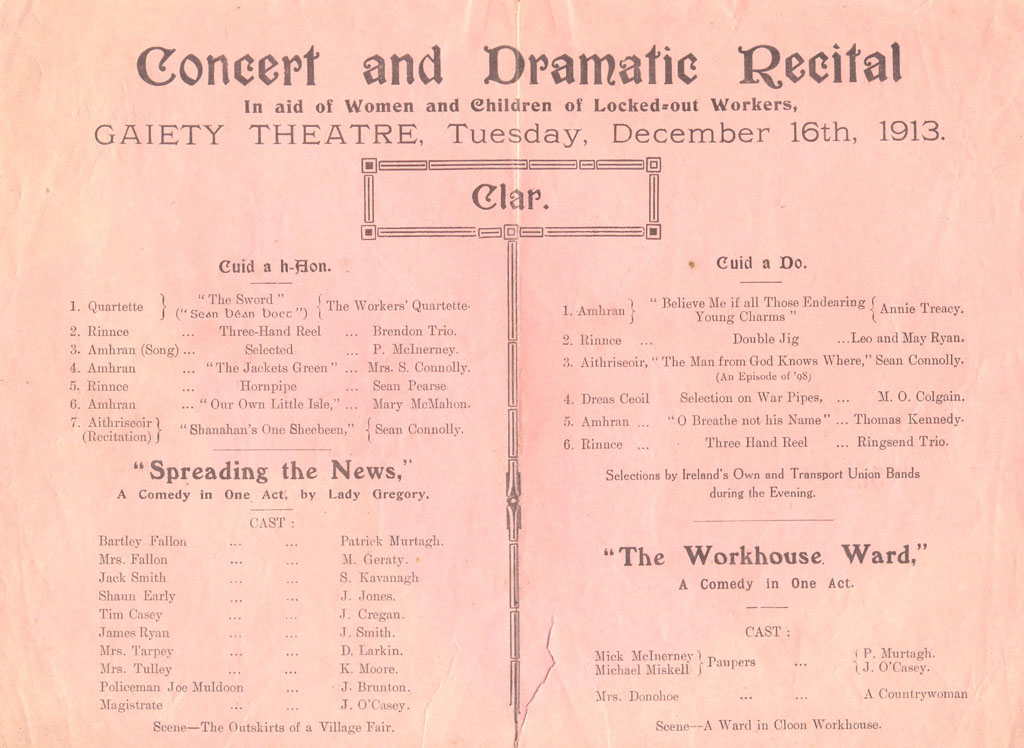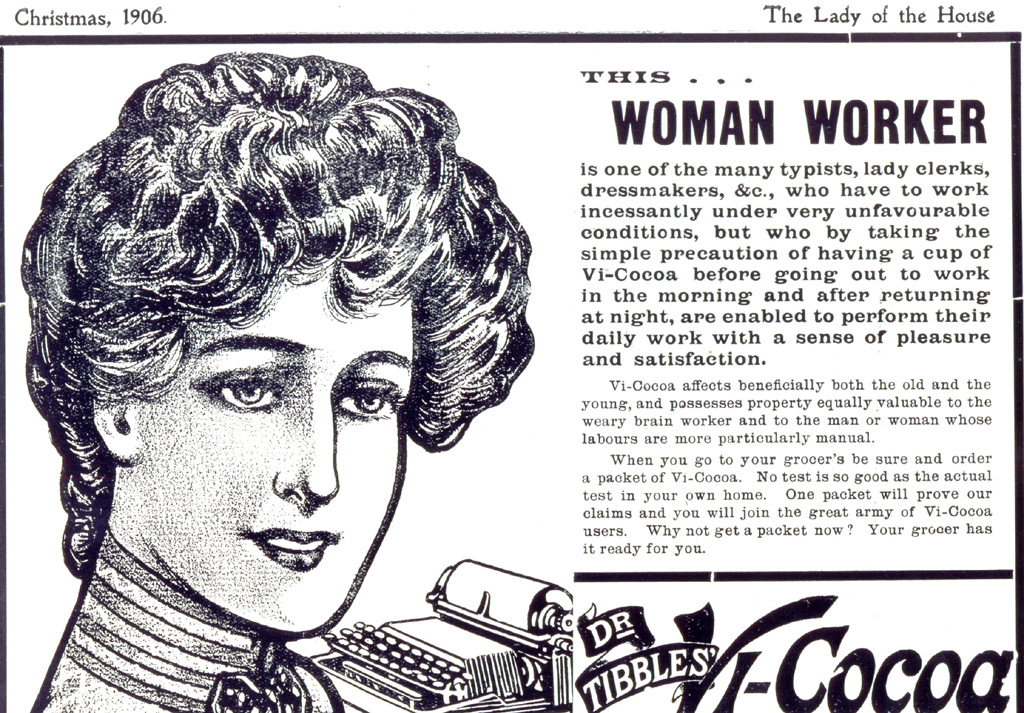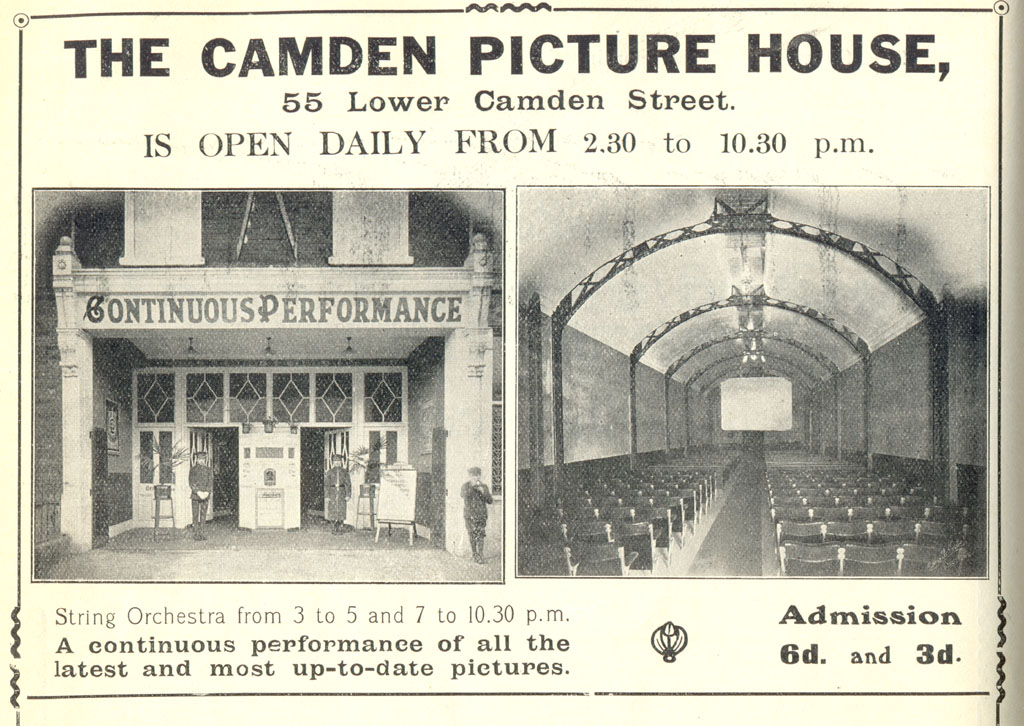Galleries
A Tale of Two Cities
Source: A Tale of Two Cities, Dublin City Archive
TTC02 William Martin Murphy, 1910
The most successful businessman of his generation, the first Catholic nationalist to become President of the Dublin Chamber of Commerce and member of the board of the Great Southern and Western Railway. He created the Dublin United Tramway Company, the Irish Independent newspaper empire and pioneered major engineering projects in West Africa and South America. He also led Dublin employers in the Great Lockout of 1913 when he almost succeeded in smashing the nascent Irish Transport Workers’ Union.
TTC05 Another Lockout, 1913
The Tango became a dance craze in the first decade of the 20th century. Parisian women abandoned their corsets to dance it more easily, but in Dublin dance movements which involved close body contact, were considered somewhat shocking. Ceilis held in the Mansion House were considered a more appropriate alternative to formal ballroom dances.
TTC12 Fianna Eireann Ard Fheis, 1913
Many labour activists, as well as militant nationalists, sent their children to Fianna Éireann in Dublin, where its chief patroness was Countess Markievicz. But most of members would become associated with radical republicanism than the labour movement over the coming decade.
TTC11 A Lockout Fundraiser
The programme from a fund raiser for locked out workers in the Gaiety Theatre in December 1913. The cast includes Delia Larkin, sister of Jim and co-founder of the Irish Women Workers Union, Sean Connolly, who became a Captain in the Irish Citizen Army and first rebel fatality in the Easter Rising and J (Seán) O’Casey who was heavily involved in raising money for the Liberty Hall food fund to keep the ITGWU soup kitchen open.
TTC25 Lady Typist, 1906
It would be some years before Lady Typists became trade unionists but this ad for vi-cocoa inadvertently illustrates their poor working conditions.

